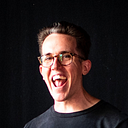
Short answer: Not much.
I’m a sucker for Goodreads’ annual reading challenge. In past years, I’d set myself the goal of reading 26 books a year — one each fortnight — and whether or not I hit the target, I found it a useful way to stay motivated. Reading goals are happy goals, satisfying simultaneously a need for leisure and a need for personal development.
This year, I set myself a big, hairy, audacious goal — 52 books. I boxed time in my calendar for reading most days, made sure I always had 2 or 3 books (a mixture of fiction and non-fiction), and bought a good, worn-in, second-hand reading chair. Then COVID-19 hit, which made reading easier while making everything else harder. It’s December 22nd and I’m nearly there. I’ve read 50 books so far, and anticipate I can clear the last two (The Embodied Mind and The Ministry for the Future) over a lazy Christmas and Boxing Day.
Yet the main thing I have realised this year is that reading a large quantity of books hasn’t made me any wiser.
Indeed, this year I forgot entire books I’d read. I saw that I’d read Warlight, which I’d misremembered as a book about a young Tasmanian going to war. That book was The Narrow Road to the Deep North, which itself I had misremembered as being titled The Long Road to the Deep North, and being set in Japan (where my great-grandfather was a prisoner of war) rather than Burma. I remember almost nothing about Warlight, except that the protagonist was a faintly shadowy figure and… it felt vaguely Victorian. Something about a carnival and floorboards. I may be wrong.
My non-fiction record isn’t great either. I had a short binge on productivity books and ironically forgot I had read Nir Eyal’s Indistractable. I was halfway through The Old is Dying and the New Cannot be Born when I realised I’d already read it once. I remember This Life: Secular Faith and Spiritual Freedom having a huge impact on me, but I cannot say what that impact was. I also read Four Futures: Life After Capitalism, and I can only remember the worst of those four futures (Spoiler alert: Mad Max).
There is no self-development advice less contentious than “read lots of books.” Dense, voluminous reading is a Silicon Valley-inhereted self development hack — Warren Buffett reportedly reads 500 pages a day, Bill Gates reads 50 books per year, and a young Elon Musk apparently read 10 hours a day. Blinkist has turned this obsession in to a business model, essentially claiming to be able to distil ideas in to simple propositions which can be transmitted in less time than it takes for an UberEats delivery to arrive.
I don’t feel any wiser having read a great deal this year. Elon Musk, reading ten hours a day, still feels it appropriate to call people paedophiles and make transphobic jokes over twitter. So — what gives? Does reading work?
If I learned one thing from all my reading this year, it’s that my mind is not a computer. It doesn’t download, store, and retrieve information like a server in cold storage. It certainly doesn’t transfer information in one go. If we want to get benefits from reading, we have to learn how to read like human beings rather than like computers. So, how do human beings read?
We can answer this question by looking for edge cases where reading is actually effective in promoting personal transformation. We can ask: Where and with who do we see evidence of deep learning as a result of engagement with texts and stories? The answer, of course, is in religious practice.
Buddhists not only read but meditate on Sutras through a specified process which involves multiple readings and cultivated psychological states. Aboriginal Australians, though not a written culture, maintained their stories through intergenerational processes connected to place, kin and meaning making — they also enacted their stories multimodally through movement and song. Christians read basically the same book over and over, and often spend hours discussing a single passage. They also have specific people who help them implement the book’s lessons in real life.
Reading works best when it is relevant to and applied within and through a shared lifeworld, repeated across time and enacted across different mediums, and done with cultivated attention and awareness. Christians called it Lectio Divina, but Deep Reading will do for secular purposes. You can think of Deep Reading as trying to read through a book, rather than simply read a book. Books are lenses on to which we can see our own lives and communities differently.
I was partly right with the old chair and the timeboxing, but otherwise I spent a year playing in the shallows.
No wonder that I don’t remember that the main theme of The Memory Police — which I read just three months ago — was about the importance of books for maintaining our history and memory.
My goal next year — read fewer books more deeply.
